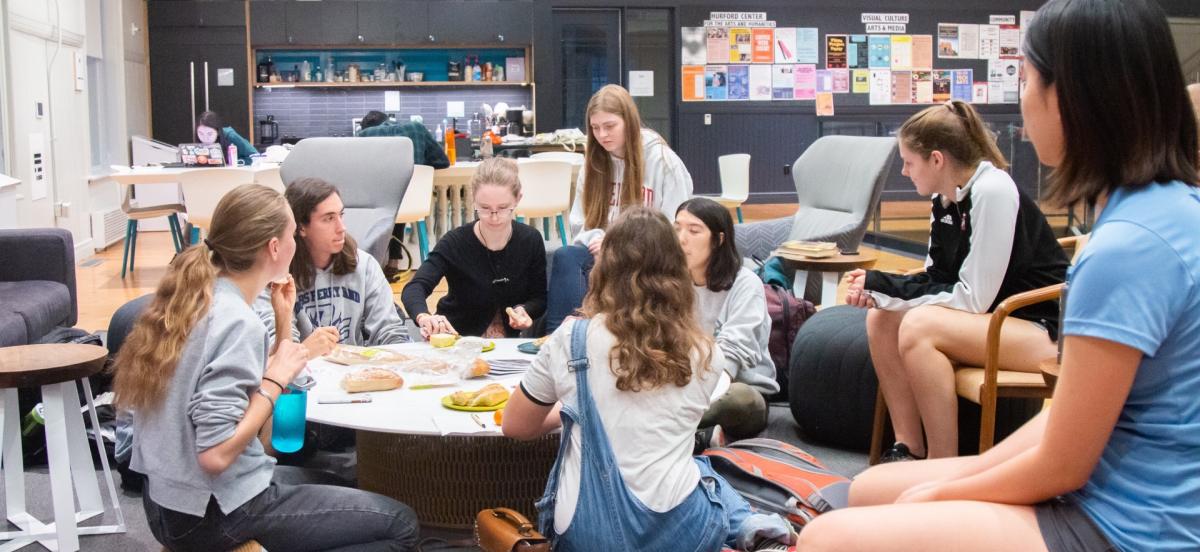2020-21 - ELECTIVE COURSES

Photo: Claire Blood Cheney '20
Details
Click on the link above to see elective courses for the academic year
Fall 2020
Kathryne Adair Corbin
French 225: “Politique et poétique: la femme et la presse quotidienne (1836-1918)” (FS). In this course, we consider pivotal moments in French culture, society, and history from the perspectives of women witnesses, exploring how the first generation of women journalists modernized the image of the woman and gave new representation to women in the press.
David Sedley
French 312: “L’éducation et ses sujets de la Renaissance aux Lumières” (FS). The goal of this course is to put modern theories and practices of education into historical perspective by looking at some of their early-modern French and European counterparts. We will focus on how a cluster of its “subjects”—both things that are studied andpeople who study them—developed into fixtures of modern education. These educational subjects include inclusivity, civility, technology, essays, literature, images, theater, and algorithms. We will read early-modern authors such as Rabelais, Montaigne, Marie de Gournay, Elisabeth de Bohème, Poulain de la Barre, Racine, and Rousseau. We will also read selections from recent pedagogical theory in order to see whether and how they reflect, reform, or reject early-modern ideas.
Spring 2021
David Sedley
French 202: “Culture, France, Renaissance” (SS). The topic of this course is not just French Renaissance culture but also the ideas that the very existence of “French culture” presupposes: the idea of culture and the idea of France. How did they come about, and how were they joined into a single thing known thereafter as “French culture”? This peculiar process is fundamental to Western modernity. We will study it by taking into account a series of Renaissance masterpieces in various genres (novel, story, essay, poetry, painting, architecture) as well as critical perspectives on them from our own era. Through this exploration, we will attempt to understand how new senses of identity took shape: on national as well as individual levels (France, the self, the savage, and the civilized); and in a context of political, geographical, and religious upheaval (civil war, colonialism, and Reformation).
Koffi Anyinefa
French 312: “DiscourS sur la traite des esclaves, l’esclavage et leur abolition” (SS). In this course we will study the transatlantic slave trade, slavery, and their abolitions. Starting with the Code noir – a law regulating slavery in French colonies originally passed in 1685 under Louis XIV and reinforced during the ‘Siècle des Lumières’ – we will read our way through the centuries, mixing texts from different medias (literary, filmic, museological) by both French and Francophone writers, artists, and institutions.




